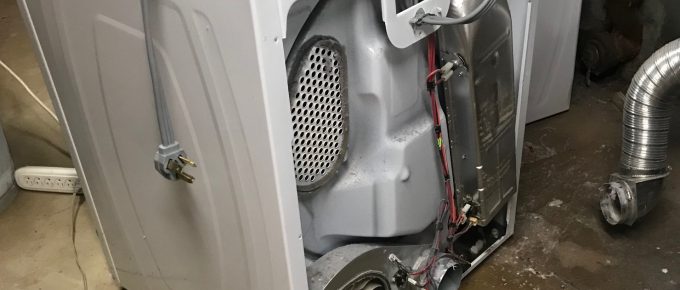
When your tenants move out, there are certain rental property repairs that you must make and others that you are required to make before renting again.
What repairs should a landlord make when a tenant moves out?
Most states will require you to provide a rental property in a clean and habitable condition before handing it over to new tenants. This typically means having working heating, plumbing, electricity and locks. Renters will also expect a rental to be clean, have working appliances and fresh paint, or they may look elsewhere.
You may only have a short period of time to make repairs before your new tenants move in. So, it is important to be ready and use your time wisely so everything gets done. Here is our breakdown of the top rental property repairs to make before new tenants arrive.
Repairs vs scheduled maintenance
Certain updates you should make to your rental are actually considered normal scheduled maintenance. These are the things you should do regardless of whether a tenant is moving out. This may be cutting the lawn, trimming bushes, changing light bulbs, replacing HVAC filters, routine painting, and insect treatments.
What is a repair? When something is broken and needs to be fixed. This may be a leaking pipe, cracked window, hole in a wall, running toilet, or door that won’t shut.
Sometimes a repair may be an emergency that needs to be fixed right away such as a water leak, or safety issue. When this happens you will need to make arrangements with your tenants to get the issue resolved right away. However, minor repairs such as damage to walls, or an unreported issue with an appliance may only be identified during a final inspection.
Final inspection can identify needed repairs
Upon notice of your tenants leaving, and before they vacate the property, you should arrange a walkthrough of the premises to review and record the condition of the property. This can then be compared to the condition when the property was originally handed over to tenants.
Often a lease agreement will include provisions for what happens when damage by the renter is encountered. This might include a direct payment for the repair or deducting the cost from a security deposit.
Obviously when damage is directly caused by the tenant such as a large hole in a wall or broken stairway balusters, it is much easier to determine who is responsible for the cost of the repair. Other times, findings such as smudges on a wall, or an old dishwasher that stopped working, the responsibility is not as clear.
Normal wear and tear
When you rent a property to tenants, you should expect a certain amount of wear and tear from normal use. Paint on walls may not be in exact condition, small scratches may be found on wood floors, or a kitchen faucet may be dripping.
Most appliances have a useful lifespan. If a dishwasher that is 12 years old suddenly stops working under normal use, it can be hard to justify the tenant paying for a repair or replacement.
Ultimately your lease and state law should help guide who will be responsible.
What repairs are required before renting to new tenants?
As a property owner, you must understand and comply with your state’s landlord tenant laws.
Many states have laws or a doctrine with specific language on habitability that requires a landlord to keep a rental property in livable condition. This typically means:
Heat and hot water – Basic HVAC systems including heat (and air conditioning in many southern areas) should be in working condition. Sufficient hot water must be available.
Plumbing – Basins, sinks, baths and other sanitary fittings including pipes and drains should be working, safe to use, and free of leaks.
Locks – The locks on all doors and windows should be operable. A complete set of keys for all locks should be available to the tenant.
Pest free – A home or apartment should be free of any pests such as mice, ants, and termites.
Electrical – The property should be free of any electrical or wiring issues. This could be a safety issue as well as a nuisance for your tenants.
Mold free – Any mold identified should be removed prior to new tenants taking possession.
Common areas – All common areas between tenants such as hallways or a lobby should be maintained by the landlord.
Exterior and structure – A landlord should maintain and resolve any issues with the property structure and exterior. Fallen trees should be removed, tall grass cut, roofing leaks repaired and broken windows replaced.
Infrastructure – Any gas appliances, pipes, flues and ventilation should be inspected and in safe operating order. If you smell gas, there is likely an issue that needs to be resolved.
Some cities and towns have inspectors that routinely visit rental properties to look for compliance and safety concerns. In other locations, it may be up to the landlord to ensure the rental is up to standard.
It is always best to complete a thorough inspection yourself and have any of the above issues resolved prior to any new tenants taking possession.
If a tenant does take possession of rental with any of these types of issues, they usually have recourse such as withholding rent or breaking a lease.
What repairs will be expected by your future tenants?
In addition to making repairs that your town, city or state may require you to make, future tenants will also likely have certain expectations about the condition of your rental property. Landlords who want to have a choice of the best tenants and fill a vacancy fast will present a rental that is in excellent condition.
Renters will compare your opening to other apartments and rentals. If they notice some basic repairs and maintenance items are not complete, they may go elsewhere, or ask you to make the repairs anyway.
When you have the opportunity to complete repairs and updates between tenants, it is a good idea to take advantage and get the work done. It can be much more difficult to fix something that is broken once your renters have occupied the rental unit.
Most common repairs to make when your tenant leaves
Here are some of the top repairs and maintenance items most tenants will expect have completed before renting:
Paint – You may not plan to paint your rental property between tenants. It takes time, effort and a few bucks. But if you have the opportunity to do this after tenants leave, consider it strongly. A fresh coat of paint will quickly make your apartment or rental look new. It starts your tenants off right and may be one thing that keeps them renewing for many years.
For most homes, painting is a fairly straightforward DIY project and can be done quickly and cheaply. Just make sure you are neat and use neutral colors.
Change locks – A lot of landlords do this anyway but many do not. By changing the locks between tenants you can put them at peace of mind that nobody else will be entering their new home.
Light bulbs – Rental properties can have a lot of light fixtures. When a renter flicks a switch and nothing happens, it is like a strike against you. Buy a bunch of lightbulbs in bulk online and stash them in a closet, garage or basement. Test every light and change any bulbs not working.
Clean carpets – Carpets collect dirt. It can make a room look grungy and even smell. Landlords should go beyond a quick vacuum and either have carpets professionally cleaned or rent a carpet cleaner and do it yourself. When showing an apartment to prospective tenants, they will recognize the difference.
Clean kitchen and bath – No matter how neat and clean your prior tenants may seem, always take the time to clean and polish the kitchen and baths. Your effort will be rewarded. Your new tenants will want to move in right away and get settled. They won’t want to clean cabinets before they can stash their stuff.
Make sure the refrigerator, cabinets, toilets, sinks and floors are all spotless. Check all latches, handles and hinges to make sure they work properly. Check the temperature on the refrigerator. Make sure all toilets flush properly.
Windows, doors, security – Sometimes a window gets broken, a door does not shut properly or you could have inadequate exterior lighting. Take the time to fix these things after your old tenants leave so your new renters will feel comfortable and safe. You might even consider offering a digital doorbell. Recently a car smashed into the mailbox of one of my rentals. I was able to use the Nest camera to identify the culprit as a delivery person for the neighbor across the street and collected payment for a new mailbox. The cost of the digital doorbell is already paid for!
HVAC – The cost of repairing and replacing heating and air conditioning systems can be expensive. But, as part of being a rental property owner, you should plan for regular maintenance, periodic repairs and eventual replacement.
Tenants love to hear that the cost of heat and/or utilities are included in the rent. They will be happy to know that you have a modern efficient HVAC system with low monthly costs. Renters do not want to learn that they have enormous heating bills after they move in, or that the heat and AC only work in certain rooms.
Washing machine, dryer, dishwasher – Nothing is more of a pain to tenants who have to lug their clothes to a laundromat because their apartment does not have a machine or it does not work properly. Most appliance repairs are simple and the machines last a long time. Plus you can buy a new machine and it should last for years.
Smoke detectors & carbon monoxide detectors – Make sure you have adequate coverage for smoke and carbon monoxide detectors. Adding a hardwired system is best for a rental property. If you are using battery operated devices, be sure to check them regularly, including when your tenants move out.
Can I take a tax deduction for rental property repairs?
It is important to note that there are some advantages to making repairs to a rental property after a tenant moves out, beyond just making the premises easier to rent.
You may be able to deduct the entire cost of the repairs as an expense on your federal and state tax returns. This deduction could significantly reduce the overall cost of making the repairs. Consult with your tax advisor to make sure you are taking advantage of any savings applicable.
Another advantage of repairing your rental when vacant is it will increase the value of your property. If you decide to sell the rental down the road, investors will notice a property that is properly repaired and maintained.
Preparing your rental for new tenants has its rewards
When you have tenants who move out, take advantage of the time to get your property ready for the next tenant. Make sure you are aware of and abide by any state laws. Presenting a rental that is in tip top shape, can help you find quality tenants a lot faster. It can help make your experience as a landlord more satisfying and profitable in the long run.
